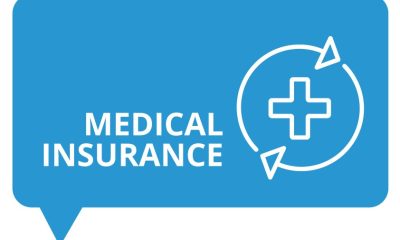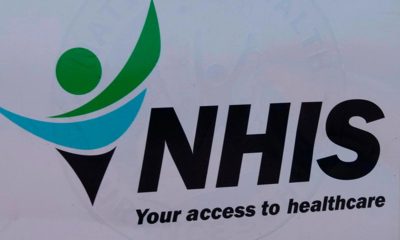Insurance
The Best Health Insurance Options For The Unemployed

Unemployed persons can access quality healthcare through Medicaid/CHIP, COBRA, short-term health insurance, family policies, Affordable Care Act plans, or Medicare. We’ll review the finest insurance for unemployed people.
Health Insurance Options For The Unemployed
Job loss entails more than income. Unemployment often means losing health insurance. Unemployed people may find health insurance difficult. Unemployed persons have various practical health insurance options.
After losing your employment, you can enroll in a Marketplace plan during special enrollment. This means you don’t have to wait until November for open enrollment. Low-income people may qualify for Medicaid. Non-Medicaid Marketplace plans are affordable.
Unemployed people have five health insurance options:
1. Medicare
Medicare is a large health insurance program that helps seniors in the U.S. pay for hospital, medical, and other health bills. Medicare is primarily for people 65 or older. You may be eligible for Medicare sooner if you have ALS (also called Lou Gehrig’s disease), End-Stage Renal Disease (permanent kidney failure that needs dialysis or a transplant), or a disability. Medicare includes four parts:
- Part A. Hospital insurance and services.
- Part B. Medical services, including doctor visits, tests, and other outpatient services.
- Part C. Medicare Advantage Plans, sold by private insurance companies Medicare approves.
- Part D. Prescription/drug coverage.
2. Medicaid/CHIP
In 2021, 64% of uninsured adults said they didn’t have healthcare coverage because of the cost. Medicaid and the Children’s Health Insurance Program (CHIP) help people with low incomes, families with children, pregnant women, the elderly, and people with disabilities get free or low-cost health insurance. Some states have expanded Medicaid to all low-income adults.
Income requirements for Medicaid are based on Modified Adjusted Gross Income (MAGI) as established by the Affordable Care Act (ACA). Those who receive Medicaid must be U.S. citizens or permanent residents of the United States.
3. COBRA
After leaving a job, COBRA (Consolidated Omnibus Budget Reconciliation Act) helps you keep the health insurance you had through your employer. After losing work coverage, you have 60 days to enroll in COBRA, and it can last for at least 18 months.
COBRA keeps your plan’s coverage the same, but the cost may significantly increase once you leave. Unlike many insurance plans, COBRA has no contract, and you can cancel at any time.
Because COBRA is typically not the most cost-effective option, it may be best only to use it until your new policy takes effect. It is also a good option if you’ve already met your former plan’s deductible or out-of-pocket maximum.
4. Short-term health insurance
Short-term health insurance can provide emergency healthcare when you are between policies or outside enrollment periods. It’s important to know that short-term health insurance does not have to follow ACA guidelines. Short-term policies vary greatly depending on the plan and the insurance provider you choose to purchase from.
Short-term health care plans are required to follow minimum essential coverage, which typically includes some form of preventive care, doctor visits, urgent care, emergency care, and sometimes prescriptions.
5. Joining a family member’s plan
Any dependent a parent, family member, or individual can claim as a personal exemption tax deduction qualifies for coverage under the policyholder’s health insurance. A dependent might be a spouse, domestic partner, or child. And if you’re under 26, you are eligible under the ACA to join your parent’s health insurance plan.
According to the Marketplace, young adults under 26 can join a parent’s plan even if they:
- Get married
- Aren’t claimed as a tax dependent
- Turn down an offer of job-based coverage
- Have or adopt a child
- Start or leave school
- Live in or out of your parent’s home
6. ACA plans
ACA plans through the Health Insurance Marketplace offer the best coverage and affordability for unemployed people. “Obamacare” policies are sold by private insurers. Plan tiers are Catastrophic, Bronze, Silver, Gold, and Platinum.
This makes finding the correct health insurance for the unemployed, self-employed, and furloughed easier. The ACA covers unemployed persons with pre-existing ailments. Children receive vision benefits, but adults must purchase dental coverage.
Takeaways
Medicaid provides low-cost and free health insurance for the unemployed. Medicaid is free for low-income people if they qualify.
As of February 2023, the 50 states and DC have about 94 million Medicaid and CHIP enrollees. One in five Americans receive Medicaid, and most have no other affordable healthcare options.
If you lost your coverage, got married, are expecting, or have a high estimated household income, you may qualify for the Marketplace’s Special Enrollment Period. discover your state on the Marketplace to discover the best Medicaid plan.
ACA health insurance plans are the most diverse and often the best health insurance for unemployed and self-employed people. There are no lifetime limits on ACA plans.






















